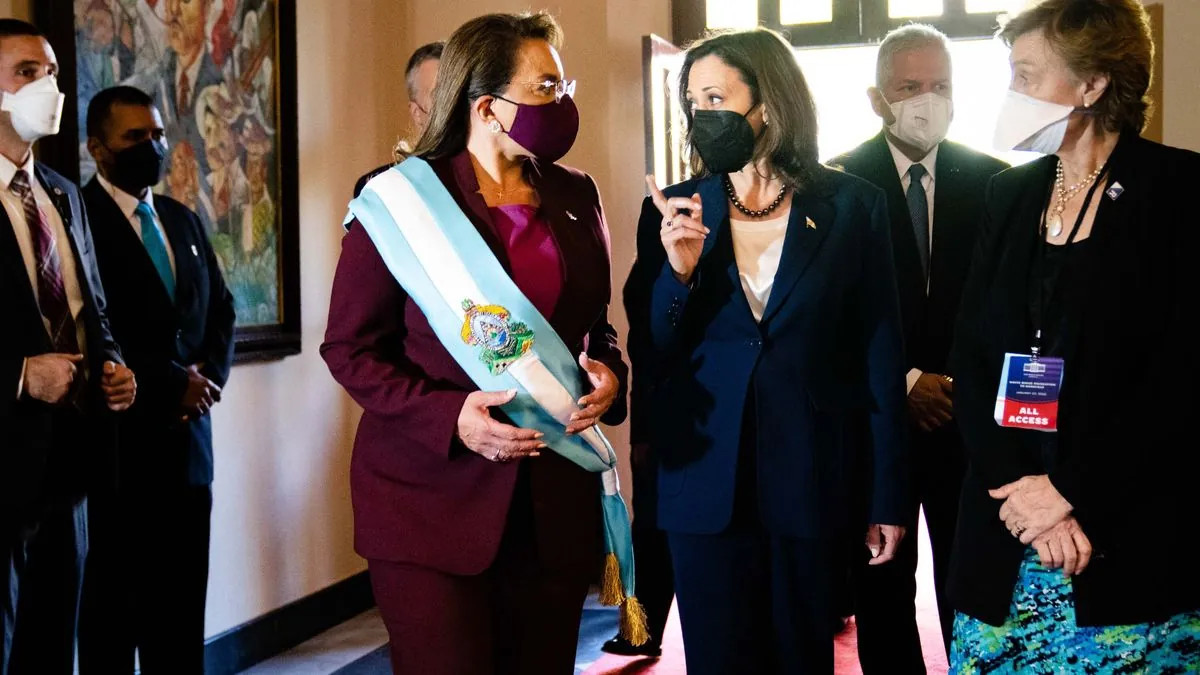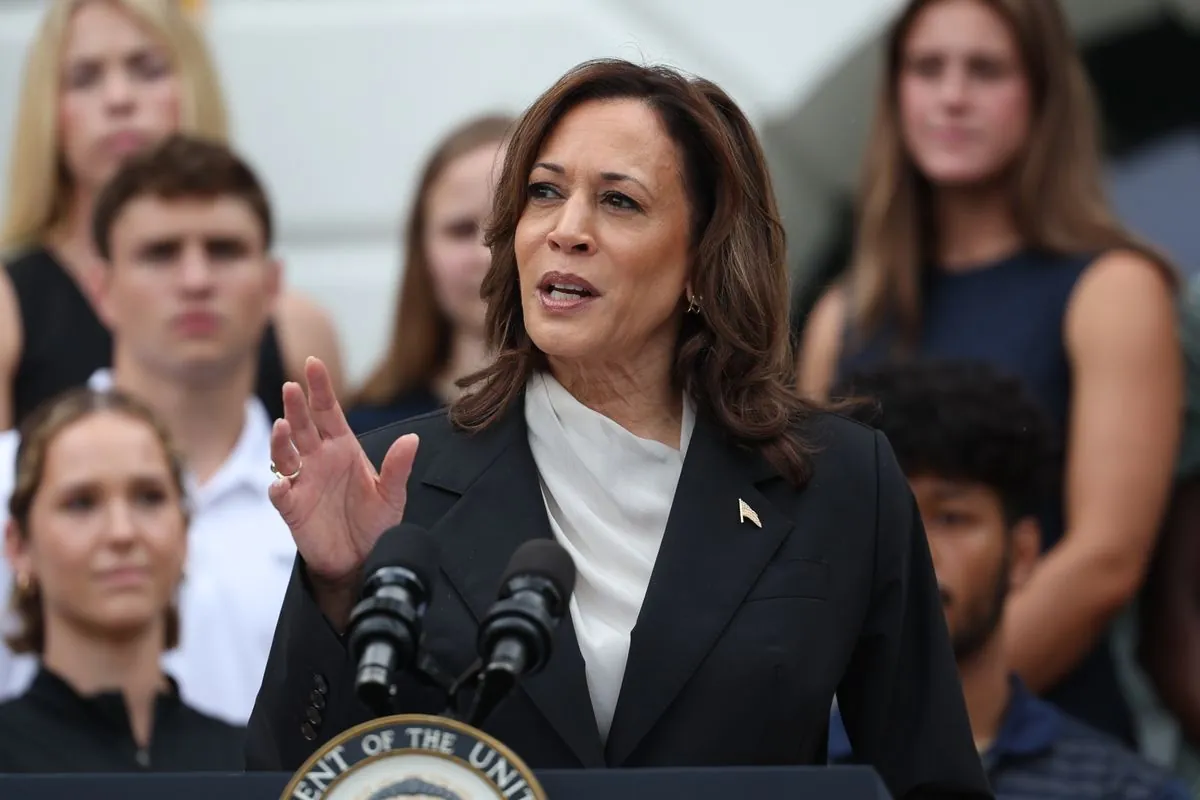Harris' Central America Strategy: Long-term Investments vs. Immediate Border Issues
Vice President Kamala Harris focused on root causes of migration from Central America, emphasizing business investments. Critics argue this approach neglected immediate border concerns, while supporters defend its long-term potential.

In early 2021, President Joe Biden assigned Vice President Kamala Harris the task of addressing migration from Central America, specifically El Salvador, Guatemala, and Honduras - collectively known as the Northern Triangle nations. This decision has since become a focal point of political debate and scrutiny.
Harris' approach centered on tackling the "root causes" of migration through long-term economic investments, rather than addressing immediate border issues. She worked to encourage multinational corporations and Latin American businesses to invest in the region, arguing that job creation would provide incentives for locals to remain in their home countries.

The vice president's efforts resulted in investment pledges from companies such as Visa, Nestle, and Meta (formerly Facebook). According to Harris' office, these commitments totaled over $5.2 billion. However, as of June 2024, the State Department reported that actual investments had reached nearly $1.3 billion, primarily in Guatemala and Honduras.
Critics, including many Republicans, have mischaracterized Harris' role as that of a "border czar," despite her assignment not including direct responsibilities for border management. This misconception has led to criticism of Harris for issues at the U.S. southern border, which fall under the purview of other agencies such as U.S. Customs and Border Protection.
Harris has defended her record and recently released a campaign ad outlining plans to enhance border security, including hiring more border agents and addressing fentanyl trafficking. Democrats have also pointed out that Donald Trump played a role in derailing a bipartisan immigration bill earlier in 2024 that would have increased border security funding.
While migration from the Northern Triangle countries has decreased since 2021, experts debate the extent to which Harris' strategy contributed to this reduction. Some, like Senator Chris Murphy, credit the administration's efforts, while others point to regional factors such as El Salvador's new government and its crackdown on crime, which resulted in a 70% drop in homicides in 2023.
"Even a whole lot of economic development doesn't curb immigration in the way countries hope it will."
The effectiveness of long-term economic investments in reducing migration remains a subject of debate among experts. While such investments may take years to impact migration patterns significantly, they address underlying issues such as poverty and lack of opportunity that drive many to leave their home countries.
As the discussion continues, it's important to note that the Northern Triangle region has historically faced challenges such as high crime rates and economic instability. The U.S.-Mexico border, spanning approximately 1,954 miles, presents complex management issues that extend beyond the scope of Harris' assigned role.
In conclusion, while Harris' approach to addressing Central American migration through economic investment shows potential for long-term impact, its immediate effectiveness in managing border issues remains a point of contention in the ongoing debate over U.S. immigration policy.


































